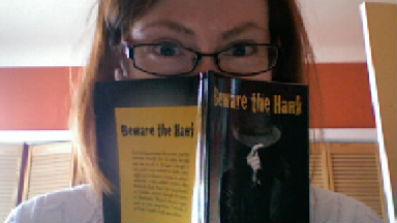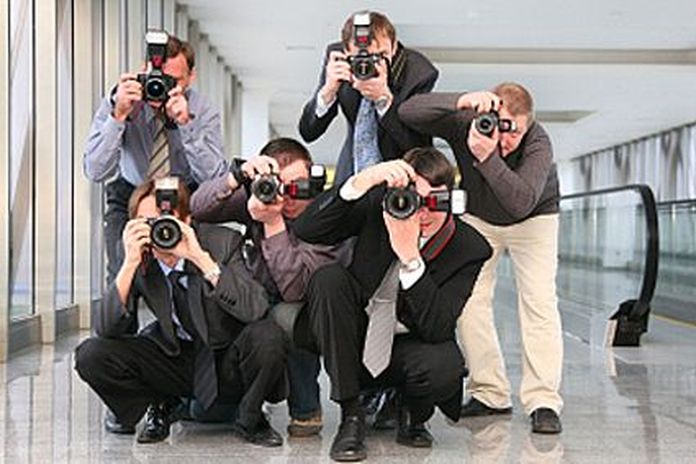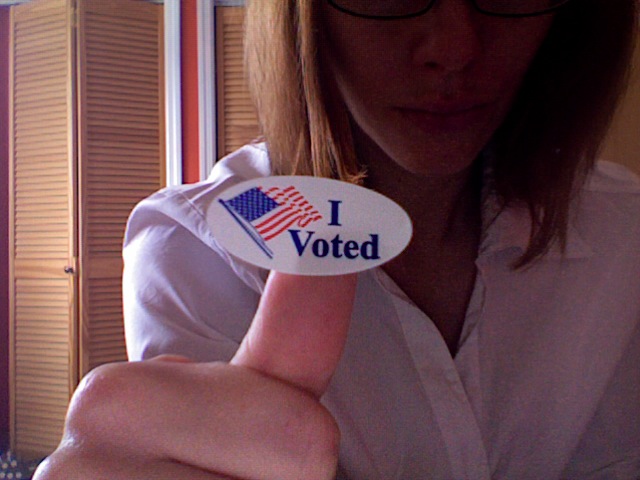I wasn’t going to write this post. I really wasn’t. I don’t have a good story to tell. I didn’t live in New York at the time. I didn’t lose anyone. I didn’t rescue anyone. I wasn’t even awake at the time the first airplane hit the twin towers. But after Phil Lemos’s post about his experience as a reporter on Sept. 11, 2001, I want to share my own story.
For Phil, the attack on Sept. 11 marked the end of his career as a reporter. But for me, the attack came at the beginning.
I’d only been a reporter for a week. A real reporter, that is. I’d spent a year making copies and emptying fax machines for the Boston Herald’s business desk before that. But then I put my resume online and surprise! The Norwalk Hour in Connecticut, a paper which covers several bedroom communities around New York, wanted to hire me. I moved to my very own apartment in Bridgeport on Sept. 3, and covered my first school board meeting on Sept. 4. I was due to cover another one on the evening of Sept. 11. My editor had told me to come into work at 3 p.m. that afternoon, to prepare to work until 11 or 12.
I rolled out of bed late on the 11th. My radio was still in a box. I didn’t have a television or an Internet connection. I did, for some reason, want to change my cell phone number to a CT-area number rather than keep my Massachusetts area code. So I dialed up AT&T and was connected to a frantic customer service representative.”Don’t you know?” She was breathless. She told me everything. She told me the true stuff: two airplanes had flown into the World Trade Center in New York and one had hit the Pentagon in D.C. She told me the rumors: there were 12 more planes in the air headed for tall buildings all over the nation. The poor woman was terrified. I think she told me that she worked in the Space Needle in Seattle. Wherever she was, she was evacuated, and we got off the phone. I yanked the radio out of the box in time to hear NPR’s coverage of the attacks. The correspondent had recorded the sound of a tower falling.
I drove like a maniac on I-95 S to get to work. The northbound lane was jammed with people headed away from New York. I was one of only a few headed south. No one knew what to expect that day. We thought the highways would be closed and we’d have to sleep in the newsroom. We thought that bodies would be put on trains and shipped to our morgues. One reporter said that toe tags were handed out at the train station. We were sent to different places, handed different numbers to call.
I have no memory of what I did on that particular day. But I do remember the days and weeks and months following the fall of the towers. I remember walking into the house of a woman whose husband worked in the towers. It had been a week, but she believed that the rescuers would find him and bring him home. I remember talking to survivors and grieving parents, children and spouses. There were endless memorial services, endless intrusions on the grief of people who’d lost their loved ones in a very public way.
Sept. 11 was everywhere that year. It became an election talking point instantly. We talked to schools about Sept.11 curriculum and security measures. Every time the security level rose or fell there was a story. Firefighters were interviewed. Policy was examined. I watched George Bush’s ‘Axis of Evil’ speech with a family that lost a grown son in the towers. I experienced that whole year as a journalist, and because I believed that the best thing I could do as a reporter would be to remain impartial, I suppressed my own emotions about the attacks. I thought of myself as a reporter first, then a human, then an American. I was 23, and believed myself to be uncompromising.
When my emotions arrived on the first anniversary of the attacks, they showed up as baseless rage.
I came into the newsroom to write up an early-morning memorial service and found the entire adverstising department gathered tearfully around our television, burning red, white and blue candles on my desk. I saw those candles and their box of tissues and I went quietly, furiously berserk. I wanted to knock the candles off my desk and scream. I wanted to ask them who exactly they thought they were, standing around, crying in my newsroom about Sept. 11 when I spent my days mired in the pain of people who’d lost loved ones in the attacks. Really? Advertising gets to stand there and cry? What do they know about Sept. 11? It felt like Sept. 11 had never ended for me. That whole year was Sept. 11, day after day after day, we kept waking up and going to work and it was still Sept. 11.
It felt like it would always be Sept. 11 and I was tired of the stories about sick rescuers and dying police dogs. I was tired of the photos pasted to walls. I was tired of memorial services and of lists of names and of talking to the bereaved and of seeing angry people who flew American flags from their vehicles. All of that just made me unbearably sad. That was when I finally admitted to myself that Sept. 11 was my tragedy as well.
I didn’t say any of this to the advertising department. I just sat down and typed my article. I don’t know if that realization shaped me as a person or a reporter – like I said, I don’t have a very good Sept. 11 story. But I do think that as soon as I accepted my own feelings about Sept. 11, the year-long day ended, and Sept. 12 began. And as far as I’m concerned, it’s still Sept. 12. It may always be.



